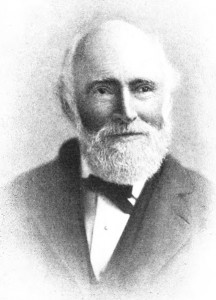Christmas Classics PERSON OF THE DAY: John Sullivan Dwight
On this date in 1893, John Sullivan Dwight died in Boston. He was one of the more compelling figures from Harvard University who were Christmas carol composers or translators. They included among others, Edmund Hamilton Sears (It Came upon the Midnight Clear), Henry Wadsworth Longfellow (I Heard the Bells on Christmas Day), and Rev. Phillips Brooks (O Little Town of Bethlehem). Dwight’s contribution was providing the English translation for O Holy Night after the French carol Cantique de Noël.
After graduating from Harvard Divinity School, John Sullivan Dwight served as a Unitarian minister in Northampton, Massachusetts. But his stay there was short-lived. He had to leave the ministry because he became deathly ill when he had to deliver sermons to his congregation. After leaving the ministry he became a recluse and then sojourned to the socialistic Brook Farm community, of which he was one of its founders. For five years there he lived a transcendental life teaching classical languages and music. Life on the commune also meant time for farming, cutting wood, cultivating trees, and other chores.
Eventually he returned to Boston and devoted himself to literature where he became America’s first influential classical music critic writing for Dwight’s Journal of Music. For several years it was the only musical journal in the country.
Dwight also cultivated an interest in European carol tunes, particularly the French carol Cantique de Noël (a.k.a. Minuit Chrétiens). A carol with an intriguing history, it became much disliked by French church authorities even though it had originally been well received by them and the church faithful. This turnabout led to criticism about the carol’s perceived lack of musical taste and because it did not possess the “spirit of religion.” But the repudiation of the carol may have been due to Placide Cappeau, the carol lyricist, and his socialist leanings and later renunciation of Christianity; not to mention the fact that Adolphe Adam, the composer of the carol melody, was Jewish.
Thirteen years after Dwight’s death the carol had the distinction of being the first ever heard on the radio. On Christmas Eve in 1906 ships at sea heard O Holy Night being played on a violin.
- John Sullivan Dwight

